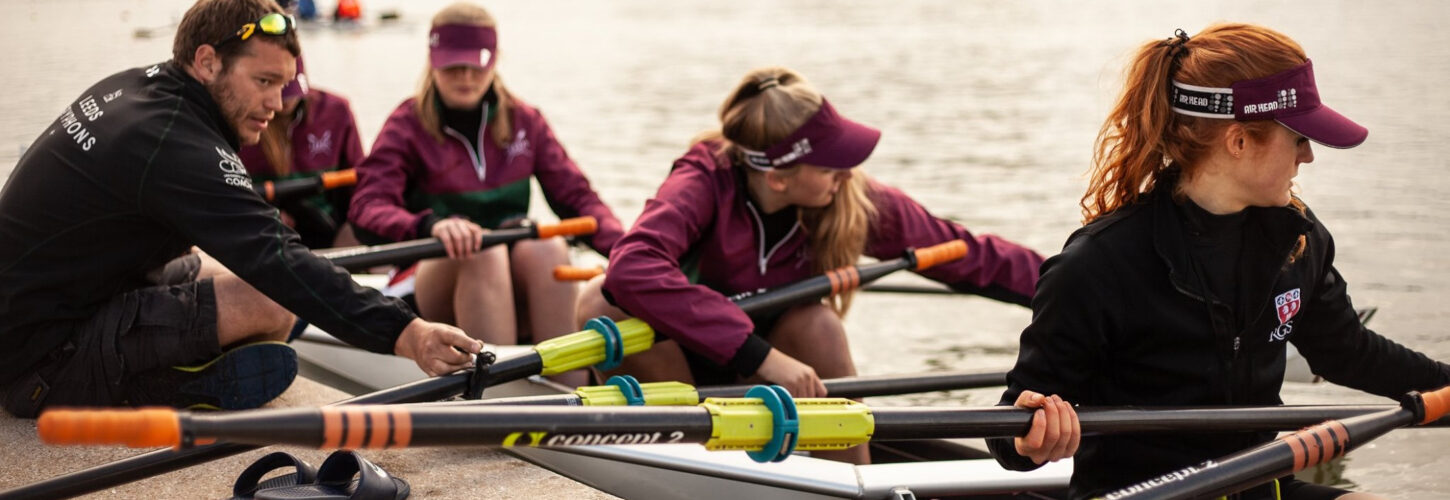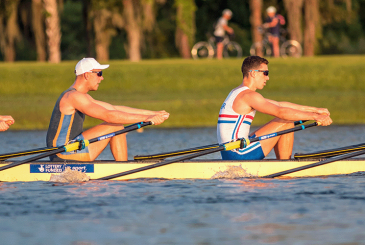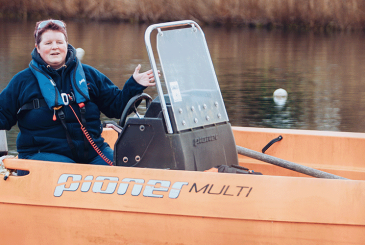As part of our coverage to celebrate our fantastic coaches, Toby Bryant speaks to Dan Grant, Head of Rowing at Leeds University Boat Club
The British Rowing Coach of the Year Award winner, formerly a coach development officer at Welsh Rowing, speaks on how to foster a club culture which can support coaches, as well as rowers.
“It’s not just about giving them [athletes] knowledge, but getting ideas from them too,” Grant says.

It’s a mantra that is fast being adopted by coaches across the globe – earlier this year Jim Denison of the University of Alberta spoke to Rowing News on the shift to move away from “coach-as-expert” and “athlete-as-learner” to the new “coach-and-athlete-as-learners” approach.
“The main thing is trying to take a little bit of knowledge from everything,” Grant elaborates. He references an impressive past curriculum of coaching from juniors to Para-rowers to university standard athletes – “it’s pulling everything together to develop constantly as a coach,” he explains.
Athletes weighing in with thoughts can go a long way to enhancing a coach’s programme
Now at University of Leeds BC (UoLBC), the combination of paid staff, passionate volunteers and fledgling student coaches creates a bustling atmosphere. Collaboration is therefore at the forefront of Grant’s operations to ensure the club has plenty to offer for those in the boat and those on the launch.
“There are a lot of people who like to pitch in regularly, so I’ve got a constant stream of coaches,” Dan says. “We make sure we are all singing from the same sheet,” he continues, pointing to weekly meetings, readily available feedback and the sharing of ideas as key facilitators in that harmonisation.
Student athletes have a role to play in fostering a healthy coaching environment too. Grant holds regular drop-in sessions to encourage rowers to maintain open communication, ideal for those uncomfortable coming forwards straight after sessions.
“People are more willing to reach out to their peers and ask if they are okay”
“I see myself as someone who is quite easy to talk to, so athletes do come to me,” he shares.

From simple drills to getting involved in the University’s impressive coaching scholar system, athletes weighing in with thoughts can go a long way to enhancing a coach’s programme.
With numerous balls to juggle and an ever-growing number of athletes to develop, the traditional image of the strict, decision-making coach of the past can negate the difficult decisions and full-on nature that comes with the role.
“I’m confident that my athletes are aware of that,” Dan admits. “It’s usually a lot more emotional for athletes when they are making crews, or not making, but they are aware that there are only so many seats and it’s a tough decision to make.”
“We’re quite big in our club about developing the welfare side of things as well. I’ve trained with Student Minds‘ mental health in sport training.
“I deliver to committees of all sports at Leeds. Delivering this to our committee, many of whom are coaches, has helped to raise awareness of signs of where people struggle, how to have an initial conversation and then how to signpost to specific services available to provide additional support.
“I’m also due to deliver this workshop to all coaching scholars this year.
“I’ve noticed the increased awareness and support from coaches and people are more willing to reach out to their peers and ask if they are okay.”
In these cases, Dan will follow up by having a further conversation with people and adapting the programme to support their needs.
Dan’s tips
For clubs looking to support their coaching teams further, Dan highlights three key tips.
- Have a clear plan
“Know the key principles you want your coaching team to deliver on so they are all reading off the same page.” - Give ownership
“Although an overall plan is important to ensure delivery of the same principles, the coaches’ need to feel valued and feel that they can contribute in their own way. They should all have some flexibility with the approach and be able to choose what is best for the athletes.” - Keep communicating regularly
“Without some form of regular communication and feedback, it’s going to be difficult to know how best to support not only your athletes’ needs, but your coaches’ needs also.”
Photos: Martha Bowen and Anna Daggett










